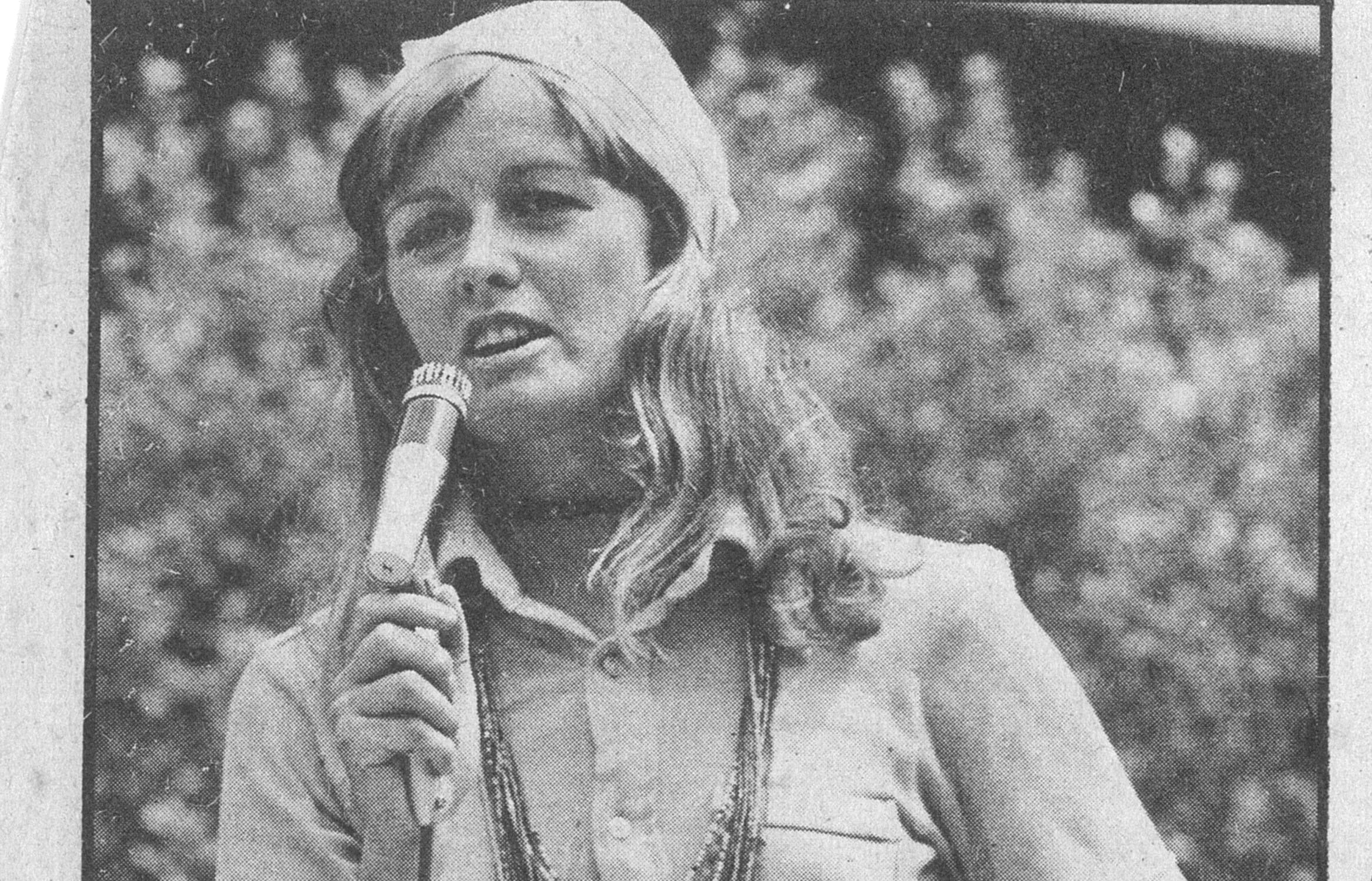Pioneering New Zealand feminist, activist and former Green MP Sue Kedgley first came to public attention in the 1970s as an early, outspoken women's liberationist for feminsm.
Her new book, Fifty Years a Feminist, details her journey and shares lessons drawn from her 50 years at the feminist coalface and why a male-dominated system has made a mess of the world.

Pioneering New Zealand feminist, activist and former Green MP Sue Kedgley, pictured in 1972. Photo: Supplied
Kedgley has been a debutante and was given a 'proper' girls upbringing. She and her twin sister Helen went to Marsden College and onto Victoria University. She tells Jim Mora politics hadn't entered her life until that stage because of her sheltered upbringing.
"I was instantly drawn to the political side of life. There was a very political atmosphere at Victoria University… I quickly got myself onto the student executive so maybe it was in my DNA."
From there she went to Auckland University where she started the Women's Liberation Group in 1971.
"When I was coming back from Papua New Guinea, I picked up a book called Sisterhood is Powerful. It was writings from women's liberation and I had what they call a feminist click as I read it. It was electrifying to me, everything fell into place and I suddenly realised that New Zealand, at that stage, was completely and utterly a man's world.
"Everything revolved around men. Women were simply expected to be a servant class to the male population and we had just absorbed the message that it was men's role to run the world and women's role to get ourselves married, if we could, bring up children and run the home."
Resolved to find a women's liberation group to join, she discovered there wasn't one. Instead, she and some other students founded their own.
"We had a wonderfully active women's liberation group for the two years I was at Auckland University."
Kedgley and her friends in the women's liberation group were optimistic, perhaps naively, that things would change quickly.
"We really had no idea what we were up against… we thought change would come quickly but it's been a long, hard slog."
Kedgley says that, in the 1970s, virtually every position of power was held by men and there had only been 11 women in Parliament. There were only male presenters and announcers on radio and television and, when Kedgley got a job as a researcher on Checkpoint, she was told a woman couldn't be a presenter because their voices aren't deep enough and they lack authority.
"There was absolutely no chance of that, though I could look forward to becoming a shopping reporter in the provinces. The whole world was bias in favour of men."
Kedgley's mother was an educated woman with a degree from the University of Otago but ended up living a life of domesticity instead of working.
"When you got married, you were expected to give up your job and to become a housewife for the rest of your life. It was very difficult, if not impossible, to hold down most jobs if you had children because there was no childcare. She was typical of women of her era."
She says that, in her student days, she and her friends thought it was normal to be sexually molested and harassed by men at student parties.
"Our job, really, was to try to fob off men and keep ourselves chaste because, if we succumbed or capitulated to sex, that could ruin our marriage prospects."
Fifty years later, a recent survey at Otago University revealed 15 percent of students reported having been raped and a further 28 percent had experienced sexual violence.
"That, to me, is extraordinary. I sort of wonder whether things have improved in this area."
Men, she says, have a great opportunity to further the feminist cause by eschewing the typical male stereotype of the stoic, hard working man defined by his job. They can also help out around the home with children and chores and, obviously, not sexual assault people.
"I think what we need is what they have in Scandinavia, which is that when you have parental leave, men have to take about 40 percent of the leave that the government provides or the couple won't have access to it.
"That has radically changed the situation there… men are now involved in that shared parenting and that is one of the ways, it'd be a fantastic experience for men - to be involved equally in bringing up children."

